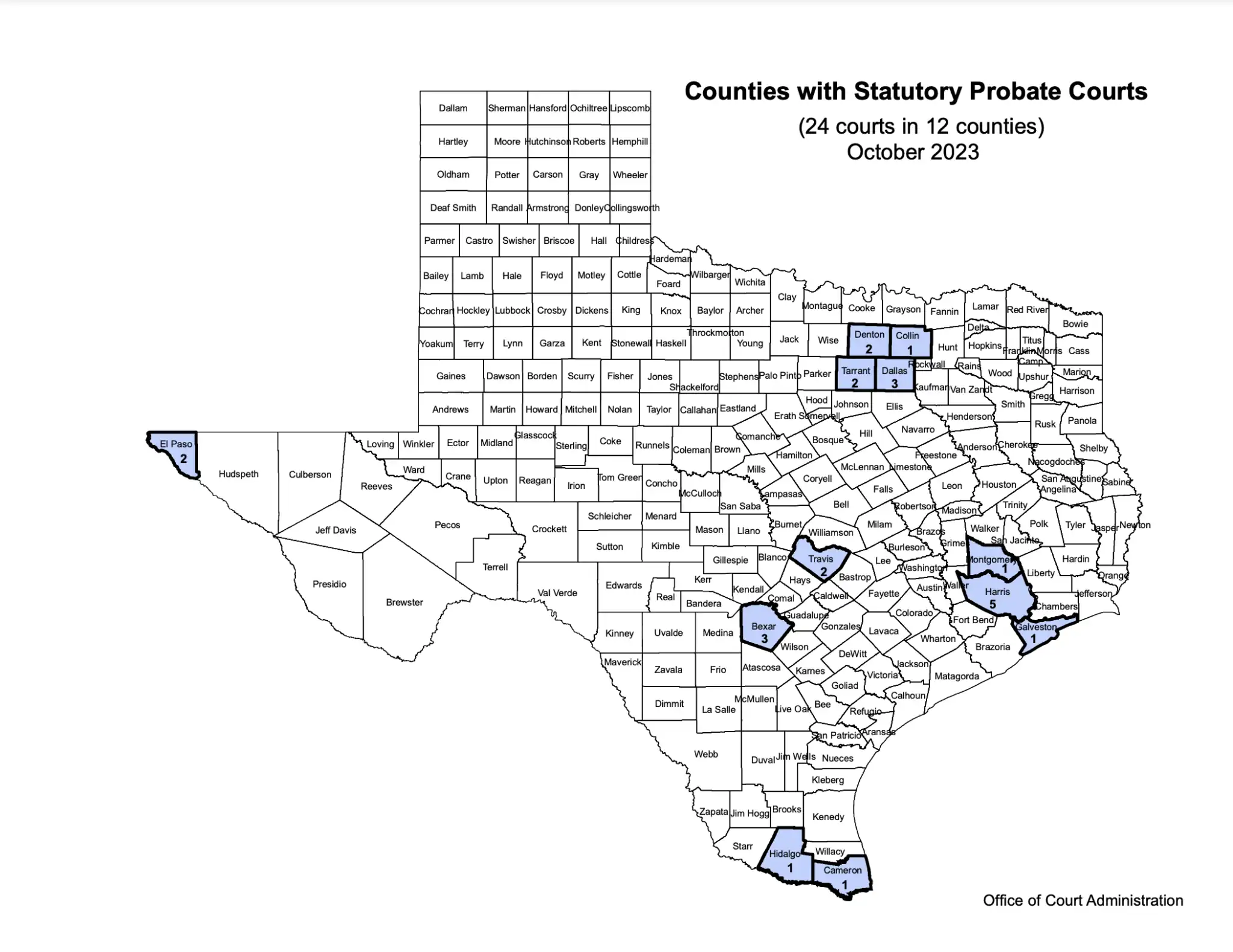Probate courts are specialized courts responsible for managing inheritance disputes and for handling the legal administration of estates. Additionally, probate courts handle matters of guardianship, trust administration, and involuntary commitments to psychiatric facilities.
Specifically, probate courts are responsible for:
- determining heirs in cases where there is no will;
- overseeing the distribution of assets from deceased individuals, particularly when there is no valid will;
- determining the validity of wills and enforcing the provisions of valid wills;
- appointing executors or administrators to manage the estates of the deceased;
- preventing misconduct by executors and administrators;
- resolving creditors’ claims against the estate, ensuring that debts and liabilities are paid before the estate is distributed;
- appointing legal guardians for minors or incapacitated adults, ensuring their well-being and legal protection.

Probate courts generally do not handle other types of cases, like criminal or general civil matters. Their role is limited and specialized.
Jurisdiction of Probate Courts
In Texas, probate courts exist only in counties where the Legislature has formally established them, typically in larger urban areas. These courts have exclusive jurisdiction over probate matters within their respective counties, serving as the primary forum for issues involving estates, wills, and guardianships. This specialization allows judges to focus on complex estate cases and helps reduce the caseload of general trial courts.
In counties without a dedicated probate court, district courts or county courts at law may exercise probate jurisdiction. This ensures that probate matters can still be handled locally, even in smaller or rural areas where a separate probate court does not exist.
In addition to their exclusive jurisdiction, probate courts also share concurrent jurisdiction with district courts in certain related civil cases. These may include disputes involving trusts, real property transfers connected to an estate, or personal injury and wrongful death claims that affect estate distribution. This overlap allows all legal issues tied to a decedent’s estate to be resolved within a coordinated judicial framework, promoting efficiency and consistency across proceedings.
Map of Probate Courts in Texas
The number of probate courts varies across Texas, with larger counties having multiple probate courts to handle their higher caseloads. For example, Harris County has five probate courts, while Bexar County has three, and Dallas County also has three. Other major counties, such as Travis, El Paso, Denton, and Tarrant, each have two probate courts.

Election of Probate Judges
In Texas, judges of probate courts are elected in a similar manner to district court judges. Both types of judges are chosen through partisan elections, and they serve four-year terms.
Qualifications of Probate Judges
To serve as a probate judge, a candidate must:
- have practiced law or served as a judge for at least five years preceding the election.
- be at least 25 years old and younger than 75.
- be a resident of his or her respective county for at least two years.
Candidates for probate judge typically have a background in estate planning, wills, trusts, guardianship, and family law.



